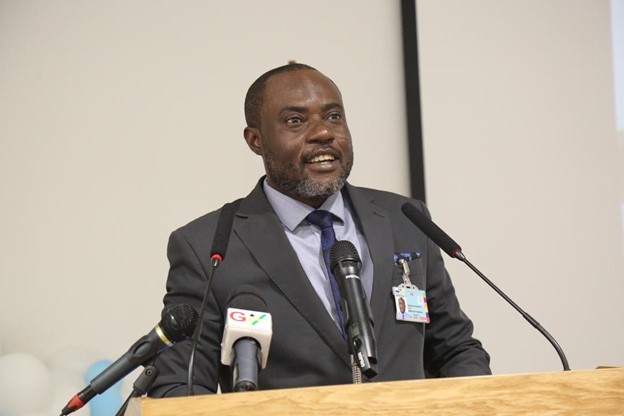The Ghana Civil Aviation Authority (GCAA) celebrated its 37th anniversary on May 16, marking a great milestone for the organisation in providing world-class regulation and air navigation services for the aviation industry.
Ing. Charles Ebo Kraikue, Director-General of the GCAA, highlighted the Authority’s efforts to modernise its infrastructure and provide efficient and effective services in a speech read at the anniversary event.
The GCAA was established as a unit within the Public Works Department in 1930, and was granted Departmental status in 1953. Government later upgraded its status to an Authority in 1986 under PNDC Law 151: with responsibilities relating to advising government on aviation matters, establishing aerodromes, managing airports, air-traffic management, and regulating air transport and air navigation services, among others.
Over the years, the GCAA has undergone several amendments and transformations to meet the International Civil Aviation Organisation’s mandate of ensuring that civil aviation operations are regulated efficiently and effectively worldwide. The organisation has also embarked on ambitious projects that have transformed the aviation industry’s face in the sub-region.
Director-General Kraikue noted that aviation operations in Ghana are now well-established as a vital catalyst for economic transformation. The Aviation industry’s planned development has been shown to contribute to many states’ attainment of the United Nations’ Sustainable Development Goals. Kraikue stressed that aviation must be safe, secure and compliant with the International Civil Aviation Organisation’s Standards and Recommended Practices to unleash its full potential.
The GCAA has made remarkable achievements over the years, as evidenced by its high ratings both locally and internationally. The GCAA maintains a high score globally, making it one of the best industry players in Africa due to its uncompromising stance on air safety in the sub-region. The International Civil Aviation Organisation now considers Ghana a Champion State due to its commitment to ICAO compliance and safety.
“Putting Ghana’s aviation industry on the path to sustainable growth requires that we pay attention to both. The Ghana Training Academy (GATA) department within the Authority was established for this purpose,” he said.
The Authority recently inaugurated a national committee comprising industry stakeholders to integrate unmanned aircraft systems traffic management (UTM) traffic into air traffic management (ATM). The move is an indication of the Authority’s determination to remain at the forefront of innovation. The GCAA continues to boost staff capacity across safety, air traffic services, and air traffic safety engineering through training programmes for its support staff.
The GCAA has modernised its infrastructure by constructing a new Air Navigation Services (ANS) complex that will commence operations soon. The world-class centre, the second-largest in Africa after a similar facility in South Africa, will deliver air traffic management (ATM) services; communications, navigation and surveillance (CNS) systems; meteorological service for air navigation; and aeronautical information management (AIM), among others. Ahead of this, the Authority has installed a new ATM system and upgraded older equipment across the country, including those located in São Tomé and Príncipe.
Speaking at the anniversary event, Director-General Kraikue revealed that plans are far advanced for the Authority to begin construction of another ultra-modern air traffic control tower building, as the current one has outlived its purpose – even though the equipment being used can match any modern ATC tower worldwide.
The Ghana Training Academy (GATA), an Associate Member of the International Civil Aviation Organisation’s Trainair Plus Programme, was established to train aviation professionals in Air Traffic Control, Aviation Safety and Security, Aviation English Proficiency, and Aviation Management among other courses. GATA has held training sessions for aviation professionals from Benin, Liberia, Nigeria, The Gambia, Togo, and Sao Tome and Principe. It works in partnership with the International Air Transport Association (IATA), United States Federal Aviation Administration (FAA) and East African School of Aviation (EASA).
Director-General Kraikue pledged that the GCAA will continue being true to its mission of providing safe and secure civil aviation regulation and air navigation services in a professional and environmentally responsible manner. The Authority continues to command respect in international circles.000000










